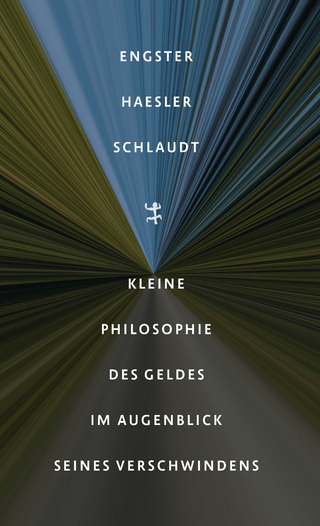
Morality and Revelation in Islamic Thought and Beyond
Oxford University Press Inc (Verlag)
978-0-19-768623-2 (ISBN)
Saemi unpacks two approaches to answering this problem. In the first part of the book, Saemi demonstrates how Islamic thinkers of various historical traditions (including the Ash'arites, the Mu'tazilites, and the Greek influenced Philosophers, falasifa) adhered to a scripture-first view. By appealing to hidden moral facts known only to God or the prophet, a scripture-first approach views moral reasoning, at least when it conflicts with Scripture, with skepticism. An ethics-first view, however, places our independent moral judgments before scripture. In the second part of the book, Saemi offers two ethics-first solutions, with some roots in the Islamic tradition, to the problem of divinely prescribed evil. Each solution argues that our own moral reasoning is reliable in the face of skeptical arguments presented by Scripture-first views and shows how a theist can maintain their belief in scripture's divinity while relying on their own moral judgments. By studying the conflict between morality and revelation in Islamic thought, Saemi offers unapologetic solutions not only for progressive Muslims but for all theists who take their moral judgments seriously.
Amir Saemi is an Associate Professor of Philosophy at the Institute for Research in Fundamental Sciences (IPM) and an Adjunct Professor of Philosophy at Rutgers University. His research is primarily on moral philosophy, philosophy of religion and Islamic philosophy. Saemi's work has appeared in journals including Ethics, Philosophical Quarterly, Analysis, and Canadian Journal of Philosophy, etc. He has also published in Electrical Engineering journals such as IEEE transactions on Wireless Communications and IEEE transactions on Vehicular Technology, among others.
PROLOGUE
DEFINING A NEW PROBLEM OF EVIL
Summary of the Chapter
I. Two Stories
II. Morally Controversial Scriptural Passages
III. Seemingly Prescribed Evil
IV. The New Problem of Evil and the Structure of the Book
V. Historical Background
PART I: SCRIPTURE-FIRST
CHATER 1
THE CONSEQUENTIALISM OF THE LATE ASH'ARITES
Summary of the Chapter
I. Divine Command Theory of the Early Ash'arites
II. The Consequentialism of al-Ghazali
III. The Moral Epistemology of al-Ghazali
IV. The Argument for Strict Adherence to Scripture
V. Taqlid and the Rule of Figurative Interpretation
CHAPTER 2
THE DEONTOLGICAL ETHICS OF THE MU'TAZILITES
Summary of the Chapter
I. The Ash'arites and the Problem of Evil
II. The Metaethics of the Mu'tazilites
III. The Normative Theory of 'Abd al-Jabbar
IV. The Moral Epistemology of 'Abd al-Jabbar
V. Natural Evil, Prescribed Evil, and Skeptical Theism
CHAPTER 3
THE VIRTUE ETHICS OF ISLAMIC PHILOSOPHERS
Summary of the Chapter
I. The Project of the Reconciliation of Reason and Religion
II. Al-Farabi's View on Epistemology and Religion
III. Averroes's View on the Harmony of Religion and Philosophy
IV. The Virtue Ethics of al-Farabi
PART II: ETHICS-FIRST
CHAPTER 4
THE IMPERMISSIBILITY OF MORAL DEFERENCE
Summary of the Chapter
I. Moral Deference in Contemporary Philosophy
I. Al-Razi's Ethical Theory
II. Al-Razi on Moral Deference
III. Moses and Impermissibility of Pure Moral Deference
IV. A Solution to the Problem of Prescribed Evil
CHAPTER 5
THE RELIABILITY OF OUR MORAL JUDGMENTS
Summary of the Chapter
I. The Debate on Objective and Subjective Ought
II. Scripture, Ignorance and Uncertainty
III. Ignorance Revisited
IV. Kantian Arguments for the Accessibility Constraint
V. Moral Knowledge Optimism and The Mu'tazilites
VI. The Case of Abraham
CHAPTER 6
THE HERMENEUTICS OF SCRIPTURE
Summary of the Chapter
I. Ethics-first Solutions to the Problem of Prescribed Evil
II. Lessons from a Philosophical Tale
III. The Nature of Law
IV. Legal Interpretation Defended
V. The Moral Functions of Scripture
| Erscheinungsdatum | 10.02.2024 |
|---|---|
| Verlagsort | New York |
| Sprache | englisch |
| Maße | 226 x 170 mm |
| Gewicht | 499 g |
| Themenwelt | Geisteswissenschaften ► Philosophie ► Metaphysik / Ontologie |
| Geisteswissenschaften ► Philosophie ► Östliche Philosophie | |
| Geisteswissenschaften ► Religion / Theologie ► Islam | |
| Sozialwissenschaften ► Pädagogik | |
| ISBN-10 | 0-19-768623-0 / 0197686230 |
| ISBN-13 | 978-0-19-768623-2 / 9780197686232 |
| Zustand | Neuware |
| Haben Sie eine Frage zum Produkt? |
aus dem Bereich


